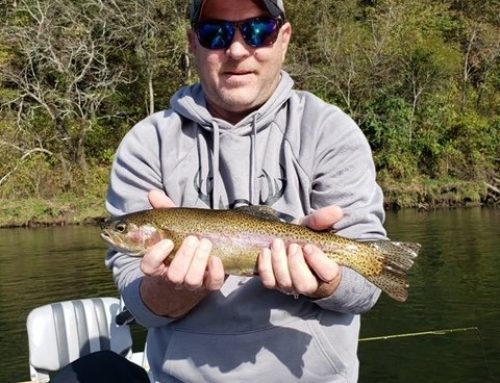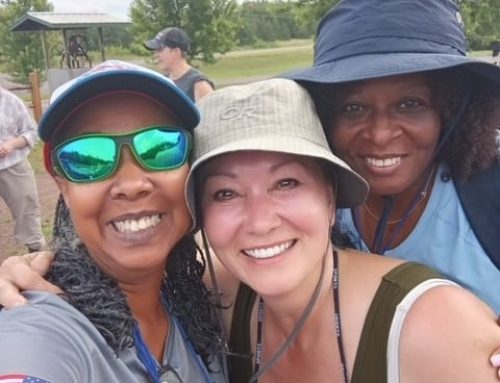The transition from the military to civilian life can hold unexpected challenges for many veterans.
It’s particularly true for combat vets, as well as those who have served since the September 11, 2001, terrorist attacks.
Derek McGinnis understands the challenges firsthand. An Iraq War combat vet, he served in the Navy as a hospital corpsman for eleven years. He was injured in 2004’s Operation Phantom Fury, losing his leg in battle.
In addition to his own recovery and readjustment, which included going back to school to get his master’s degree in social work, Derek currently serves combat veterans and their families at the Modesto Vet Center in central California, where he sees many of the challenges firsthand.
Part of the problem for some vets is the sudden change in their level of responsibility. “Military vets are used to being in charge,” Derek explained. “But suddenly they don’t have that anymore.”
Contributing Factors
 The Pew Research Center conducted a survey of 1,853 veterans to determine the factors that contribute to readjustment experiences. The study found 27% of vets reported that re-entry was difficult for them—but that number increases significantly to 44% among veterans who served since 2001.
The Pew Research Center conducted a survey of 1,853 veterans to determine the factors that contribute to readjustment experiences. The study found 27% of vets reported that re-entry was difficult for them—but that number increases significantly to 44% among veterans who served since 2001.
Additionally, the survey found six variables that increased the probability of challenges with reentry…
- having a traumatic experience
- experiencing a serious injury
- serving in the post-9/11 era
- serving in a combat zone
- serving with someone who was killed or injured
- for post-9/11 veterans but not for those of other eras, being married while in the service
It’s why programs like Rivers of Recovery (RoR) are so important.
“You have certain memories of situations in your life, positive or negative, and you can go back to that place in an instant,” Derek explained. “It could be driving down a highway that looks like Iraq or the smell of diesel fuel.”
One trick is to add positive images as well. “Rivers of Recovery plants images in your head… the shoreline, the tree line, the fish, the boat,” he said. “I can picture my RoR trip perfectly. It creates a positive memory that I can go back to when I need to, and then carry on with the day.”
Part of Derek’s own objective, as well as his job with the VA, is to help vets find a new mission and purpose after they leave the military. “Once they do one thing, like participate in an event like RoR, we ask them, ‘What else can you do? What else do you want to do?’ It opens the door to possibility.”
Finding Purpose Helps Readjusting
Paul Hendricksen, a former platoon sergeant in the U.S. Army, agrees that part of the adjustment to civilian life is finding purpose again.
“A lot of soldiers are in a leadership position,” he said. “But when you get out of the service, you are just another guy. Vets sometimes feel like they’ve been demoted, like they have no control anymore.”
That can create anxiety, which may prevent vets from wanting to participate in activities, including programs like Rivers of Recovery. Plus, there’s a certain amount of inertia.
“A lot of guys didn’t want to go,” Paul said of the soldiers under his command. “There’s a young solider mentality—they would rather be with hanging out with their buddies instead.”
Ironically, though, former RoR participants always mention the comradery as one of the most memorable parts of the trips.
“People who understand you best are people who have the same experience,” Paul explained.
Taking That Jump
Paul credits RoR with helping him and many of the other soldiers he served with.
 “The most important thing RoR gives veterans is coping skills and reflection,” he said. “After I got out of service, I went through a nasty divorce, and struggled with alcoholism,” Paul said. “Fly fishing was one of the things that kept me focused and helped me readjust after the military. It helped me bond with my son. It was a balancer, a way to do something healthy. It got me out of the house and got me off the train.”
“The most important thing RoR gives veterans is coping skills and reflection,” he said. “After I got out of service, I went through a nasty divorce, and struggled with alcoholism,” Paul said. “Fly fishing was one of the things that kept me focused and helped me readjust after the military. It helped me bond with my son. It was a balancer, a way to do something healthy. It got me out of the house and got me off the train.”
For Paul, fly fishing became more than a sport. “One of things that fly fishing gave me was the ability to lead again,” he said. “I can teach other people. I taught my father, which was cool role reversal—usually it’s the dad teaching the son.”
And whether other vets take to the sport or not, Paul encourages them to try.
“There’s a huge amount of anxiety and the fear of the unknown,” he said. “But after a trip like RoR, you can say, ‘I did that. I could do that again. I don’t have to stay home and wallow.’ It’s all about taking that jump.”






I really enjoy your post. I am a mad keen fisher so your stuff really appeals to me and my mates. Cheers.
I went on a RoR trip. Learned a lot, had a wonderful time, and certainly took a lot away from the experience. Great organization!